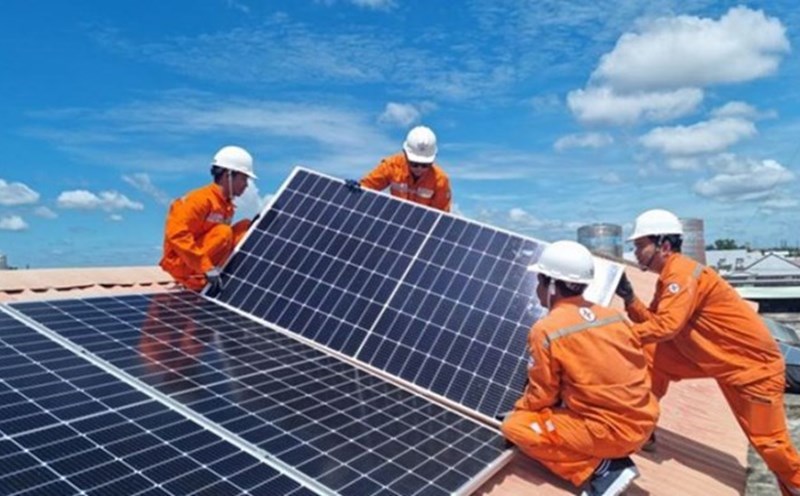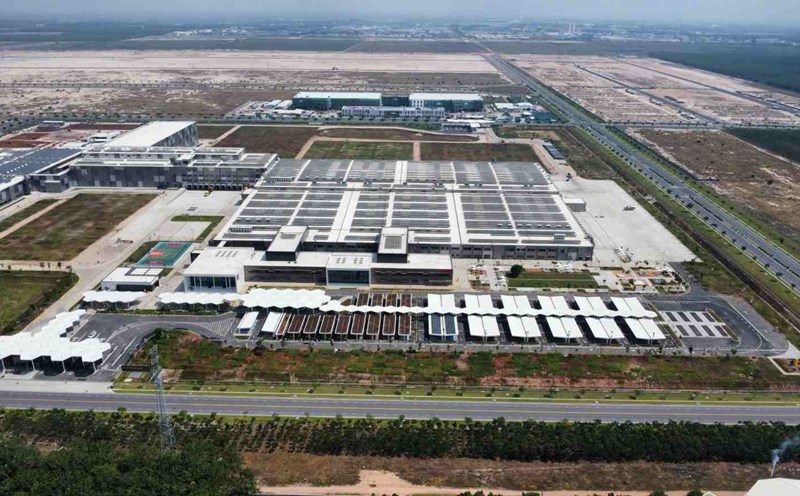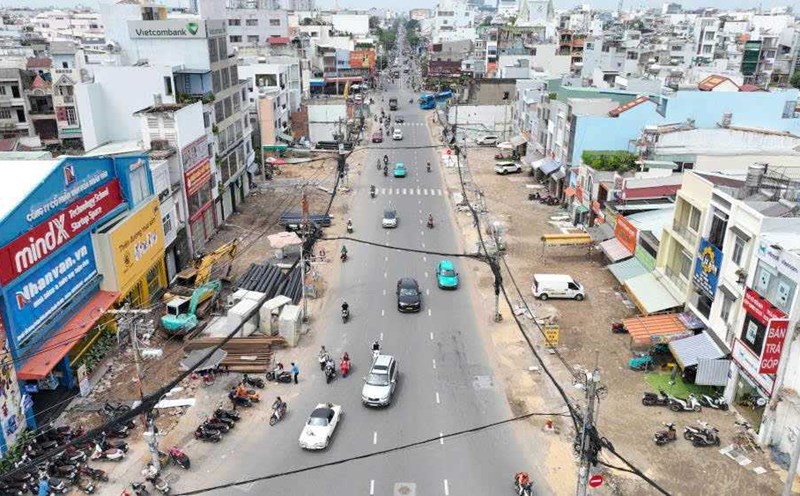Amending and specifying regulations in the new law
Speaking at the opening of the Conference, Mr. Dang Hai Dung - Deputy Director of the Department of Innovation, Green Transformation and Industrial Promotion (Ministry of Industry and Trade) - emphasized that in the context of Vietnam promoting industrialization, modernization and international integration, the use of energy economically and efficiently is identified as a key task.
This is not only an urgent requirement to ensure national energy security but also a practical solution to fulfill the commitment to achieve net emissions of 0 by 2050.

According to Mr. Dang Hai Dung, Vietnam's energy demand is growing very rapidly, an average of 8 - 10% per year. It is forecasted that by 2030, the total primary energy demand will reach 150 - 170 million TOE, nearly double that of 2020.
Meanwhile, the potential for energy saving in industries and fields is still very large: Industry can save 20 - 30% if applying modern technology; construction and civil works can reduce 15 - 20% of electricity thanks to high-performance design and equipment; Transport can save 10- 15% of fuel thanks to technical standards and vehicle management.
"After more than 10 years of implementation, Decree No. 21/2011/ND-CP has promoted an important role in implementing the Law on Energy Efficiency and Economy. However, many regulations have revealed limitations, not keeping up with the requirements of socio-economic development and international commitments on reducing greenhouse gas emissions" - Mr. Dung assessed.
According to Mr. Dung, on June 18, 2025, the National Assembly passed the Law amending and supplementing a number of articles of the Law on Energy-saving and efficient Use. On that basis, the Government assigned the Ministry of Industry and Trade to develop a new Decree to replace Decree 21, to specify the law, overcome shortcomings and create a legal corridor in accordance with reality.
"The amendment and concretization of the provisions in this law not only aims to increase the effectiveness of state management, but also aims for greater goals, reduce emissions, and enhance competitiveness of Vietnamese goods in the international market" - Mr. Dang Hai Dung emphasized.
According to the representative of the Ministry of Industry and Trade, the Draft Decree adds many important contents, emphasizing:
First, perfect the national energy statistics mechanism and database, serving the forecasting and policy making work.
Second, clearly define the responsibilities of key energy users, from energy management to periodic energy audits.
Third, promote energy labeling, eliminate low-performance equipment, and promote the energy-saving product market.
Fourth, form a Fund to promote energy-saving and efficient use, support energy projects and service organizations ( UNESCO).
Fifth, strengthen inspection, examination and handling of violations, improve the effectiveness of law enforcement.

New legal corridor creates a foundation for sustainable energy use
Speaking at the conference, Mr. Ngo Son Hai - Deputy General Director of EVN said that with the role assigned as a core unit in the production, transmission, distribution and trading of electricity nationwide, EVN is always clearly aware of its responsibility not only in the safe and continuous supply of electricity but also in promoting the use of energy economically and efficiently.
"Over the years, EVN has proactively participated in giving comments, building and perfecting the legal system related to the electricity industry from laws, decrees to circulars of the Ministry of Industry and Trade. Thereby creating a complete legal corridor for the Group's activities. At the same time, EVN is also speeding up the progress of many key projects, especially 500 kV power grid projects, to ensure stable power supply for socio-economic development, especially in the Northern region" - Mr. Ngo Son Hai said.
According to Mr. Ngo Son Hai, in the upcoming context, the issuance of a decree guiding the implementation of the Law on Energy Efficiency and Savings is of special importance, creating a unified legal corridor for implementation in practice. EVN is not only an implementation unit but also actively participates in the process of giving comments and proposals, together with businesses and management agencies to remove difficulties, ensuring that regulations are put into practice.










